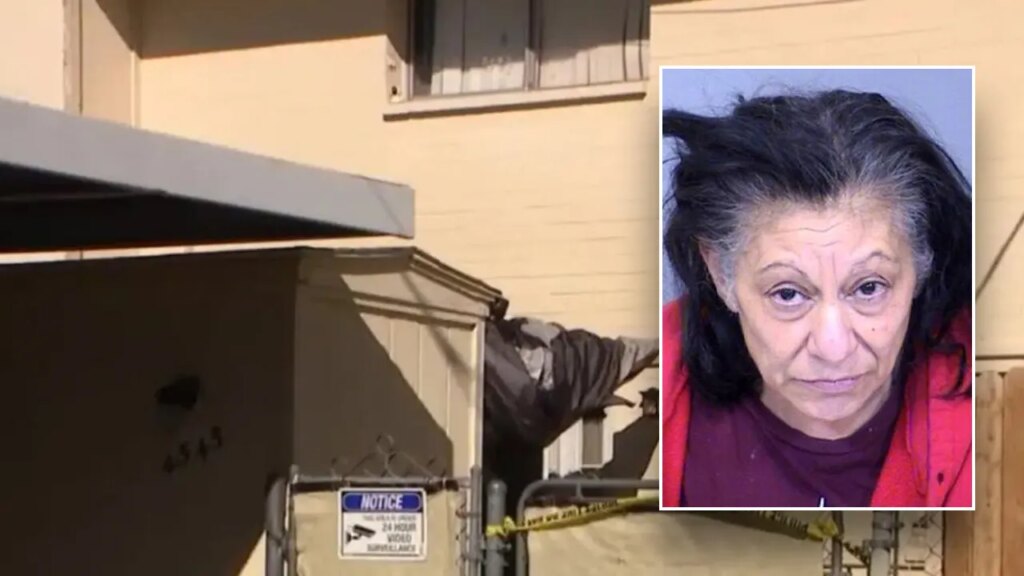The tragic death of a 13-year-old girl in Arizona, who suffered from epilepsy, has been confirmed as a homicide by the Maricopa County Medical Examiner’s Office. Melony Granados was found unresponsive at her grandmother Virginia Lujan’s home, where disturbing conditions were reported. Following a history of alleged neglect and abuse, Lujan, 55, had been charged with multiple offenses but passed away in custody before facing additional charges.
| Article Subheadings |
|---|
| 1) Background of the Victim and Her Condition |
| 2) Details of the Incident |
| 3) Investigative Findings |
| 4) Legal Proceedings and Charges |
| 5) Impact and Community Reaction |
Background of the Victim and Her Condition
Melony Granados was a 13-year-old girl who lived with a rare form of epilepsy, complicating her daily life and functioning. Reports indicate that her cognitive impairments left her functioning at the level of a 3-year-old, making her particularly vulnerable. Her emotional and physical well-being was the responsibility of her grandmother, Virginia Lujan, who had caring arrangements in place but ultimately failed to provide a safe environment. Granados was one of five children belonging to Lujan’s daughter, Jami Hodges, who had transferred custody of four of her children to Lujan due to concerns regarding their welfare.
Details of the Incident
On January 20, 2023, Lujan made an emergency call to police, reporting that Granados was unresponsive. Officers arriving on the scene found her lying on the living room floor of their Tempe townhouse, where she was discovered with extensive bruising. Lujan claimed that her granddaughter had fallen down the stairs, a narrative that authorities found suspicious upon further investigation. Tragically, Granados died the following day at a local hospital, raising serious concerns about the circumstances leading up to her death.
Investigative Findings
Upon investigating the living conditions of the home, officials described it as “filthy,” riddled with trash, insects, and overall unsanitary conditions. What alarmed investigators further was the discovery of a bunk bed that had been converted into a makeshift enclosure for Granados. This makeshift cage was made using baby gates and rails, zip-tied to the frame, and contained human waste, suggesting neglect and prolonged confinement. It was clear that Granados had been kept in these atrocious conditions for extended periods of time, which ultimately played a role in her demise.
Legal Proceedings and Charges
In light of the findings, Lujan was indicted in February on multiple charges, including child abuse, evidence tampering, and contributing to the dependency of a child. Prosecutors cited the egregious conditions in which Granados was found as critical components of their case. However, before additional charges could be filed following the medical examiner’s report confirming the homicide ruling, Lujan died in custody at the Maricopa County Jail last month due to natural causes, a development that has left many unanswered questions and a community reeling.
Impact and Community Reaction
The circumstances surrounding Melony Granados’ death have sparked outrage in the Tempe community and beyond. Community leaders and child welfare advocates are calling for a closer examination of the systems in place that failed Granados. The case has highlighted the challenges faced by vulnerable individuals living in unsafe environments and raised awareness about the need for better protective measures for children with disabilities. Advocacy groups are emphasizing the importance of maintaining vigilant oversight and providing adequate resources to families dealing with similar issues.
| No. | Key Points |
|---|---|
| 1 | Melony Granados suffered from a rare form of epilepsy and cognitive impairments. |
| 2 | Granados was found unresponsive in a filthy home with evidence of neglect. |
| 3 | Investigators discovered a makeshift cage made from a bunk bed. |
| 4 | Virginia Lujan faced charges of child abuse before her death in custody. |
| 5 | The case has brought community attention to child welfare and protective measures. |
Summary
The tragic case of Melony Granados serves as a somber reminder of the vulnerabilities faced by children with disabilities in unfit living conditions. The ruling of her death as homicide emphasizes the urgent need for communities to mobilize resources towards protecting such vulnerable populations. As investigations continue and legal proceedings unfold, the focus remains on ensuring justice for Granados and preventing similar tragedies in the future.
Frequently Asked Questions
Question: What led to the charges against Virginia Lujan?
Virginia Lujan was charged with multiple offenses including child abuse and evidence tampering due to the conditions in which her granddaughter Melony Granados was found.
Question: What precautions can be taken to protect vulnerable children?
Communities can implement better oversight mechanisms and provide resources for families facing difficulties, especially those with differently-abled children, to ensure their safety and well-being.
Question: How can the community react to similar cases of neglect?
Communities can raise awareness about child welfare issues and push for reforms in local child protective services to prevent neglect and abuse.
